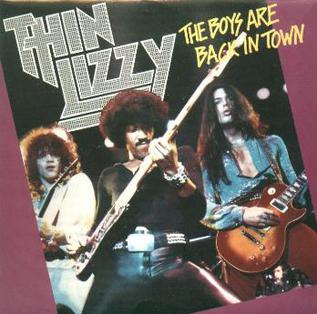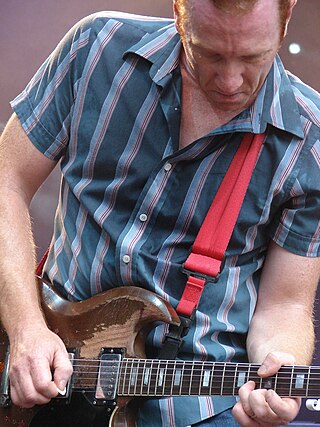Related Research Articles

The Righteous Brothers are an American musical duo originally formed by Bill Medley and Bobby Hatfield but now comprising Medley and Bucky Heard. Medley formed the group with Hatfield in 1963. They had first performed together in 1962 in the Los Angeles area as part of a five-member group called the Paramours, and adopted the name The Righteous Brothers when they became a duo. Their most active recording period was in the 1960s and '70s, and, after several years inactive as a duo, Hatfield and Medley reunited in 1981 and continued to perform until Hatfield's death in 2003. The term "blue-eyed soul" is thought to have first been coined by Philadelphia radio DJ Georgie Woods in 1964 when describing the duo's music.

Steve Harley & Cockney Rebel are an English glam rock band from the early 1970s from London. Their music covers a range of styles from pop to progressive rock. Over the years they have had five albums in the UK Albums Chart and twelve singles in the UK Singles Chart.

Katrina and the Waves were a British rock band formed in Cambridge in 1981, widely known for their 1985 hit "Walking on Sunshine". They also won the 1997 Eurovision Song Contest with the song "Love Shine a Light".
Babylon Zoo were an English rock band formed in 1992 in Wolverhampton. Their song "Spaceman" gained considerable exposure through its use in a Levi's jeans television advert in the United Kingdom in late 1995. Released as the band's debut single on 21 January 1996, it entered the UK Singles Chart at number one. "Spaceman" led to the band being considered a one-hit wonder; they had little success with any subsequent releases.

Skunk Anansie are a British rock band whose members include Skin, Cass, Ace and Mark Richardson.
Louise Gabrielle Bobb, known professionally as Gabrielle, is a British singer and songwriter. Bobb was born in Hackney, London. She released her debut single, "Dreams", in 1993, and it topped the UK Singles Chart the same year. Her other singles include "Going Nowhere", "Give Me a Little More Time", "Walk On By", and "If You Ever" – a duet with East 17.
Pilot is a Scottish rock group, formed in 1973 in Edinburgh by David Paton and Billy Lyall. They are best known for their songs "January", "Magic", "Just a Smile" and "Call Me Round".

Edmond Montague Grant is a Guyanese-British singer, songwriter and multi-instrumentalist, known for his genre-blending sound; his music has blended elements of pop, British rock, soul, funk, reggae, electronic music, African polyrhythms, and Latin music genres such as samba, among many others. In addition to this, he also helped to pioneer the genre of "Ringbang". He was a founding member of the Equals, one of the United Kingdom's first racially mixed pop groups who are best remembered for their million-selling UK chart-topper, the Grant-penned "Baby, Come Back".

"The Boys Are Back in Town" is a song by Irish hard rock band Thin Lizzy. The song was originally released in 1976 as the first single from their album Jailbreak. It is considered by Rolling Stone to be the band's best song, placing it at No. 272 on the 2021 edition of the "500 Greatest Songs of All Time" list.

Buffalo Tom is an American alternative rock band from Boston, Massachusetts, formed in 1986. Its principal members are guitarist Bill Janovitz, bassist Chris Colbourn, and drummer Tom Maginnis. The band's name is derived from the band Buffalo Springfield and the first name of the drummer.

The Equals are an English rock band. They are best remembered for their million-selling chart-topper "Baby, Come Back", though they had several other chart hits in the UK and Europe. Drummer John Hall founded the group with Eddy Grant, Pat Lloyd and brothers Derv and Lincoln Gordon, and they were noted as being "the first major interracial rock group in the UK" and "one of the few racially mixed bands of the era".

"Another Rock and Roll Christmas" is a 1984 Christmas song by English glam rock singer Gary Glitter, written by Glitter with Mike Leander and Eddie Seago and produced by Leander. It was one of the most played and popular Christmas hits on UK radio from the mid-1980s to the mid-1990s, prior to Glitter's 1997 arrest, and 1999 conviction for possession of child pornography. Released as a single in November 1984, the song was taken from Glitter's fifth studio album, Boys Will Be Boys (1984).

"Walk Like a Man" is a song written by Bob Crewe and Bob Gaudio and originally recorded by the Four Seasons.

"Heartbeat" is a rockabilly song originally recorded by Bob Montgomery and credited to Norman Petty. It was recorded most famously by Buddy Holly in 1958. The B-side of the single was "Well... All Right". "Heartbeat" reached the UK top 10 twice: once in 1975 for Showaddywaddy at number seven and again in 1992 for Nick Berry, recorded as the theme to the television series Heartbeat, which reached number two.
Little Joe Blue was an American electric blues singer and guitarist. His musical style was often compared to B. B. King.
British soul, Brit soul, or the British soul invasion, is soul music performed by British artists. Soul has been a major influence on British popular music since the 1960s, and American soul was extremely popular among some youth subcultures, such as mods, skinheads, and the Northern soul movement. In the 1970s, soul gained more mainstream popularity in the UK during the disco era.
The Official New Zealand Music Chart is the weekly New Zealand top 40 singles and albums charts, issued weekly by Recorded Music NZ. The Music Chart also includes the top-20 New Zealand artist singles and albums and top 10 compilation albums. All charts are compiled from data of both physical and digital sales from music retailers in New Zealand.

"Black Skin Blue Eyed Boys" is a song written by Guyanese-British musician Eddy Grant and recorded in London in 1970 by his band the Equals. Their recording, produced by Grant, reached number 9 on the UK Singles Chart in January 1971 and was the band's last chart hit.

"Heart of the World" is a song by Scottish rock band Big Country, released in 1990 as a non-album single. It was written by Stuart Adamson and produced by Tim Palmer. "Heart of the World" reached number 50 on the UK Singles Chart and remained in the top 100 for three weeks.

Dervan Gordon is a Jamaican-born English singer, who was the lead vocalist for The Equals from 1964 to 2017.
References
- ↑ Gambaccini, Paul (1996). British Hit Albums (7th ed.). Enfield, Middlesex: Guinness Publishing Ltd. p. 127. ISBN 0-85112-619-7.
- ↑ Richie Unterberger. "First Among Equals: The Greatest Hits - The Equals | Songs, Reviews, Credits". AllMusic . Retrieved 2016-01-25.
- ↑ Bruce Eder (1999-11-22). "Black Skin Blue Eyed Boys: The Anthology... - The Equals | Songs, Reviews, Credits". AllMusic . Retrieved 2016-01-25.
- ↑ "EQUALS | full Official Chart History | Official Charts Company". Officialcharts.com. Retrieved 1 March 2021.
- ↑ Roberts, David (2006). British Hit Singles & Albums (19th ed.). London: Guinness World Records Limited. p. 185. ISBN 1-904994-10-5.
- ↑ "The Equals Top Songs / Chart Singles Discography". Music VF. Retrieved 6 January 2022.
- ↑ Brian Currin. "South African Rock Lists Website - SA Charts 1969 - 1989 Acts (E)". Rock.co.za. Retrieved 2014-01-29.
Additional
- ↑ Chart position is from the official UK "Breakers List".